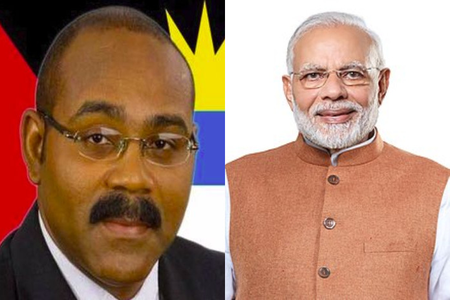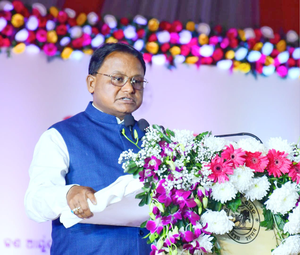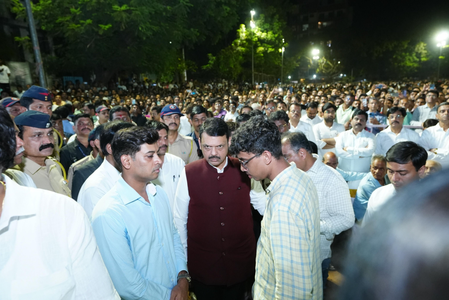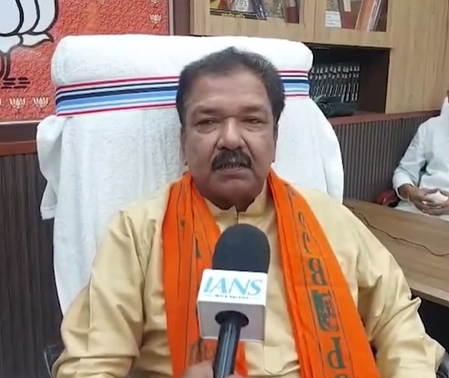New Delhi, April 21 (IANS) Prime Minister Narendra Modi on Monday stated that his government is developing policies to shape the future for the next 1,000 years.
The Prime Minister addressed the 17th Civil Services Day programme in the national capital, lauding the relentless efforts of India’s civil servants and underlining their key role in realising the dream of a ‘Viksit Bharat.’
Speaking at Vigyan Bhawan, PM Modi said this year’s theme for Civil Services Day is ‘Holistic Development of India, which means “no village left behind, no family left behind”.
“Some time ago, from the Red Fort, I said that today’s India must strengthen the foundation for the next 1,000 years. We have passed the first 25 years of the 1,000 years. This is the 25th year of this new century and also the 25th year of the new millennium,” he said.
“The policies we are working on today, the decisions we are making, will shape the future of the next thousand years,” the Prime Minister said, adding, “To achieve the resolution of Viksit Bharat, all the aspects of progress need to work together relentlessly.”
“Our young children are growing up with these fast changes. Time is moving fast. Every two or three years, new gadgets are coming in. Our bureaucracy and policymaking also cannot work by old means. We are adapting ourselves to this fast speed,” PM Modi said.
He also mentioned that the dreams of the women, farmers and youth of India are touching unprecedented heights.
“Good governance is not defined by the number of schemes but by the impact it creates on the ground,” he said.
Citing examples, he mentioned districts where solar power and improved attendance systems have shown positive results and praised the efforts of public administrators across the country.
He added that in the last decade, India has moved beyond incremental progress to transformative change.
“Today, India’s governance model focuses on next-generation reforms. Through technology and innovation, we’re bridging the gap between government and citizens. These changes are visible not only in urban and rural areas but also in remote corners of the country,” he said.
Touching upon India’s global leadership, the Prime Minister highlighted the scale of its G20 presidency. “For the first time in G20 history, more than 200 meetings took place across over 60 cities, creating a wide and inclusive footprint. This is the holistic approach of today’s India,” he said, adding, “India is not just participating — India is leading.”
He noted that while many now talk about government efficiency, India is already ahead of other countries by a decade. “We have eliminated delays and are creating new processes. Over 40,000 compliances have been removed to boost ease of doing business,” he said.
The Prime Minister recalled early opposition to reforms, including compliance reduction and decriminalisation of business errors.
He said the foundation laid over the past decade has greatly strengthened the path towards Viksit Bharat 2047.
“We cannot evaluate our work or performance by comparing it to previous governments…We must set our own benchmarks. We need to measure how far we are from the goal of a ‘Viksit Bharat by 2047’. The time for tallying up what we have achieved so far is over,” he said.
He also launched two e-books — ‘Holistic Development of Districts’ and ‘Select Innovations’ — and honoured top-performing districts in schemes like Ayushman Bharat Yojana, PM Vishwakarma Yojana, Har Ghar Jal, and PM Awas Yojana.
Awarded Districts Included Rajkot in Gujarat, Gomti in Tripura, Tinsukia in Assam, Kupwara in Jammu and Kashmir, and Koraput in Odisha.
Blocks rescued under the aspirational block programme involved Gamhariya (Jharkhand), Parappa (Kerla), Narnor (Tangana), Ganganagar (Tripura), and Rama (Madhya Pradesh).
–IANS
sd/dpb
Follow Times Report on Google News , Youtube , Whatsapp , Twitter , Instagram and Pintrest for more updates.







